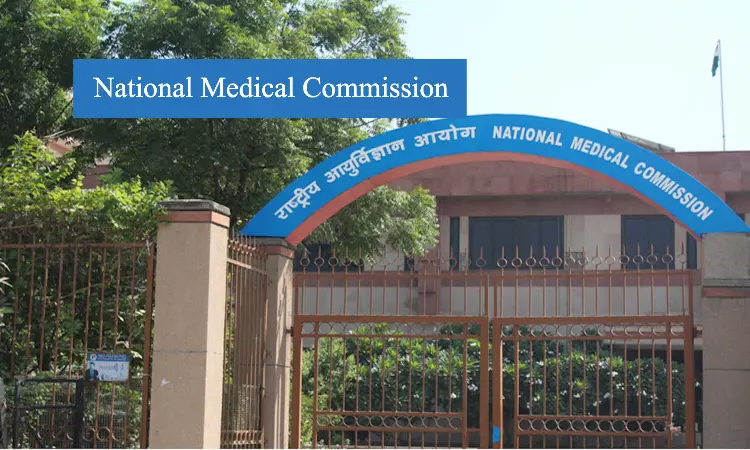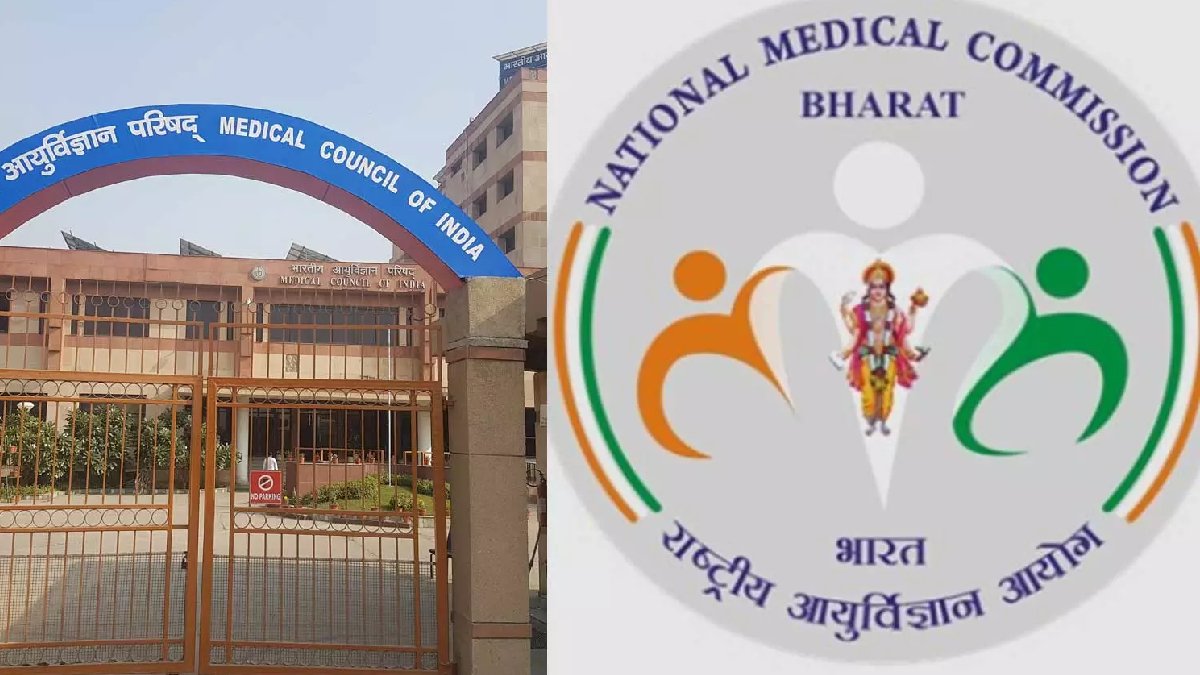India’s medical education sector is facing a wave of scrutiny and regulatory action as the National Medical Commission (NMC) intensifies its efforts to enforce stipend transparency and fair pay for medical interns, junior residents, and senior residents. In a series of stern directives and public notices issued in July 2025, the NMC has made it clear that non-compliance with stipend and fee disclosure norms will attract severe penalties—including show-cause notices, financial sanctions, withdrawal of course recognition, and even suspension of admissions. This crackdown follows years of complaints from medical students and resident doctors about unpaid stipends, hidden fees, and a lack of accountability at many private and government-run medical colleges across the country.
The NMC’s renewed focus on stipend and fee transparency is also a response to mounting pressure from grassroots movements and social media campaigns led by medical students. Over the past year, hashtags like #PayOurStipend and #FairFeesForDocs have trended nationwide, drawing attention to the hardships faced by interns and residents. Stories of young doctors struggling to pay rent, afford basic necessities, or support their families while working grueling shifts in hospitals have struck a chord with the public.
These campaigns have not only raised awareness but have also forced policymakers to confront the disconnect between the sacrifices made by medical trainees and the compensation they receive. The NMC’s directives can thus be seen as a direct response to this groundswell of demand for justice and dignity in medical education.
Another critical aspect of the stipend debate is the wide disparity in payments across different states and types of institutions. While some government medical colleges in metropolitan areas offer relatively generous stipends, many private colleges and institutions in smaller towns pay far less—or, in some cases, nothing at all. This unevenness has led to resentment and demoralization among interns, who often perform the same duties and shoulder similar responsibilities regardless of where they are posted. The lack of a standardized stipend structure across the country has also fueled migration of medical graduates to states or institutions with better pay, exacerbating regional shortages of healthcare workers and undermining the goal of equitable healthcare access.
The issue of transparency extends beyond just stipends and fees. Many students have reported that colleges sometimes levy hidden charges under various pretexts—such as “development fees,” “miscellaneous charges,” or “mandatory workshops”—which are not disclosed at the time of admission. These opaque practices leave students and their families vulnerable to financial exploitation, especially those from economically weaker backgrounds. By mandating the publication of all fees and charges at the pre-counselling stage, the NMC aims to empower prospective students with the information they need to make informed choices and to hold institutions accountable for their financial practices.
Faculty members and teaching staff have also expressed concerns about the impact of stipend and fee irregularities on the overall learning environment. When interns and residents are preoccupied with financial stress or are forced to take on additional jobs to make ends meet, their focus on patient care and academic growth inevitably suffers. This, in turn, can compromise the quality of training and, ultimately, patient safety. Senior doctors and educators have welcomed the NMC’s moves, noting that a fair and transparent system of compensation is essential not only for the welfare of trainees but also for maintaining the integrity and standards of India’s medical education system.

Supreme Court Sparks Regulatory Firestorm
The latest NMC action is rooted in a landmark Supreme Court judgment delivered on April 29, 2025, in the case of State of Uttar Pradesh & Ors. vs. Miss Bhavna Towari & Ors. The apex court unequivocally directed all private and deemed universities to disclose detailed information regarding tuition fees, hostel charges, caution deposits, and all miscellaneous charges at the pre-counselling stage. The judgment also mandated the publication of stipend details for MBBS interns, post-graduate residents, and senior residents. This judicial intervention came after allegations surfaced that nearly 70% of India’s medical colleges were failing to pay government-mandated stipends to their interns—a situation described as “serious” by both the court and the NMC.
NMC’s Transparency Mandate: Publish or Perish
On July 11, 2025, the NMC issued a public notice requiring all medical colleges and institutions under its purview to publish the complete course-wise fee structure and the stipend paid to interns, junior residents, and senior residents on their official websites. For uniform monitoring, the NMC has created a centralized Google Form for colleges to submit these details, in addition to uploading them on the Intra MCC portal. The Commission has warned that “non-compliance shall attract regulatory action as per Regulations 30 and 31 of the Establishment of Medical Institutions, Assessment and Rating Regulations, 2023, Regulation 8 of the Maintenance of Standards of Medical Education Regulations, 2023, and Regulations 9.1 and 9.2 of the PGMER, 2023.”
The penalties for non-compliance are severe:
-
Issuance of show-cause notices
-
Imposition of financial penalties (up to ₹1 crore)
-
Withdrawal of course recognition
-
Suspension of new admissions
These measures underscore the NMC’s commitment to fostering fair, ethical, and transparent practices in medical education, and to protecting the rights of medical students and young doctors.
Colleges on Notice: Past Offenses and Ongoing Violations
This is not the first time the NMC has had to threaten action against errant medical colleges. In November 2024, the Commission issued show-cause notices to 198 institutions for failing to submit stipend payment data. Despite these warnings, follow-up action has been inconsistent, and many colleges have continued to flout the rules. Recent RTI campaigns and media investigations have revealed that as many as 60 medical colleges were still not paying stipends to interns as of June 2025, with the NMC previously deflecting responsibility to state authorities.
This pattern of non-compliance has fueled frustration among medical students, resident doctors, and advocacy groups, who argue that the NMC must take direct action rather than passing the buck. The regulations empower the NMC to impose penalties and withhold accreditation for up to five years against institutions found guilty of stipend violations—a power that stakeholders are now demanding be exercised without delay.
Interns and Residents: Voices from the Frontlines
The issue of unpaid or delayed stipends is not merely a bureaucratic concern—it has real, often devastating, consequences for young medical professionals. Interns and junior doctors frequently rely on stipends to cover living expenses, repay educational loans, and support their families. The lack of timely payments can lead to financial stress, demotivation, and, in some cases, protests and strikes. The recent suspension of 64 MBBS interns from Chalmeda Anand Rao Institute of Medical Sciences in Telangana, following protests over unpaid stipends, is just the latest flashpoint in a long-running battle for fair treatment.
Resident doctors’ associations and student unions have repeatedly highlighted the issue, demanding not only prompt payment but also uniformity in stipend amounts across states and institutions. Disparities in stipend rates—ranging from ₹15,000 to over ₹40,000 per month depending on the state and college—have created a sense of injustice and inequality among medical trainees.

The Push for Full Disclosure: Fee Structures Under the Scanner
Alongside the stipend issue, the NMC’s directive also targets hidden and arbitrary fee structures that have plagued medical education for years. The Supreme Court’s judgment and the NMC’s notice require colleges to publish all details of tuition, hostel, and miscellaneous fees online before counselling begins. This move aims to empower students and their families to make informed choices and prevent last-minute financial shocks.
Transparency in fee and stipend disclosures is expected to bring much-needed accountability to the sector, curbing exploitative practices and ensuring that aspiring doctors are not burdened by unexpected costs or deprived of their rightful earnings. The NMC has emphasized that these reforms are part of a broader effort to “foster ethical and transparent practices in medical education across the country.”
Regulatory Reforms and Faculty Expansion
The stipend and fee disclosure mandates come at a time when the NMC is also rolling out major reforms to expand medical education capacity and strengthen faculty availability. New regulations notified in July 2025 allow non-teaching government hospitals with 220+ beds to be designated as teaching institutions, and broaden the eligibility criteria for faculty appointments. These changes are designed to unlock human resource potential and support the central government’s ambitious plan to add 75,000 new medical seats over the next five years. However, stakeholders caution that such expansion must not come at the cost of trainee welfare, and that stipend and fee transparency must remain non-negotiable.

The Road Ahead: Enforcement, Equity, and Student Welfare
As the NMC’s latest deadline for colleges to submit stipend and fee details approaches, all eyes are on the regulator’s willingness to follow through with tough enforcement. The medical community, student groups, and the Supreme Court have made it clear that the era of hidden fees and unpaid stipends must end. For India’s future doctors, fair pay and transparent costs are not just regulatory requirements—they are essential to ensuring dignity, motivation, and quality in the country’s healthcare system.
The coming weeks will be crucial in determining whether the NMC’s warnings translate into meaningful change or whether the cycle of non-compliance and half-measures continues. For now, the message from the top is unequivocal: medical colleges must choose transparency and fairness—or face the full force of regulatory action.
Follow: NMC
Also Read: Tragedy at Southend: 4 Lives Lost in Fiery Airport Crash—A Nation in Shock

